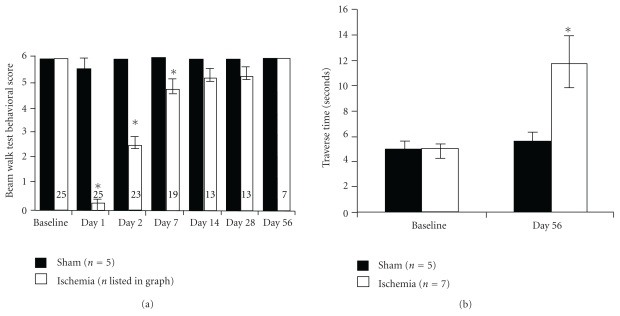Figure 9.
Functional recovery after global ischemia was tested using the beam-walking test (BWT). (a) The mean neurological scores (a score of 6 equals normal behavior) by beam-walking test before and after ischemia at days 1, 2, 7, 14, 28, and 56. The ability of the rats to walk on the beam is decreased during the acute phase after global ischemia but gradually recovers (mean ± SEM; *p < .01, paired two-tailed T-Tests assuming unequal variances). (b) The time for beam traverse before and at day 56 after ischemia. Despite the improvement in the qualitative scoring (i.e., no foot faults), the ischemic rats were much slower than sham or baseline. Because the ischemic rats were not able to complete the traverse until day 56, these are the only time points available. *indicates significant difference between preischemia and postischemia in (a) and the difference between sham and ischemia group at day 56 in (b) (mean ± SEM; p < .02; ischemia day 56 versus either sham or baseline, ANOVA, Tukey HSD post hoc test between all four groups).

